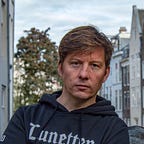Progress is made from series of experiments much more than from individual experiments my interview with Al Roth
Alvin Eliot Roth (born December 18, 1951) is the Craig and Susan McCaw professor of economics at Stanford University and the Gund professor of economics and business administration emeritus at Harvard University.
Roth has made significant contributions to the fields of game theory, market design and experimental economics, and is known for his emphasis on applying economic theory to solutions for “real-world” problems.
In 2012, he won the Nobel Memorial Prize in Economic Sciences jointly with Lloyd Shapley “for the theory of stable allocations and the practice of market design”.
Alvin is one of the world’s leading experts on matching markets. He has even designed several of them, including the exchange that places medical students in residencies and the system that increases the number of kidney transplants by better matching donors to patients. In his latest book Who Gets What — And Why, Roth reveals the matching markets hidden around us and shows how to recognize a good match and make smarter, more confident decisions.
Let’s start with the field of experimental economics. Why is there such a thing as experimental economics in the first place? I have never heard of experimental physics for example.
You’ve never heard of experimental physics?? Google it. But I guess what you mean is that most empirical physics is experimental (with some notable exceptions in fields such as astrophysics…)
Isn’t it completely logical to run experiments to fuel and validate theories? This was also the case in medicine, it was their biggest break some might say.
How does the history of medicine compare to the history of experimental economics? Did some of your guys copy-paste the work done by the scientists in the field of medicine or was it the other way round?
Are there experiments that validate the benefit of setting bones with compound fractures? Or stopping the bleeding from arterial wounds? I think formal experiments came to medicine fairly late in medical history…
If we look at the history of experimental economics, what in your opinion is the most relevant early experiment that was run? Why?
I think that progress is made from series of experiments much more than from individual experiments
Could you tell us about your own personal favourite experiment (can be by yourself or by someone else)? Why is that experiment your favourite?
See above.
Next to experimental economics, you are famous for your work on markets and market design.
Competition is a big thing of course, it’s important that companies compete to deliver the best service to consumers for example. But so far, organisations don’t use as much scientific thinking as some of us want them to use.
That sounds about right, although of course a lot of internet marketplaces are constantly experimenting.
